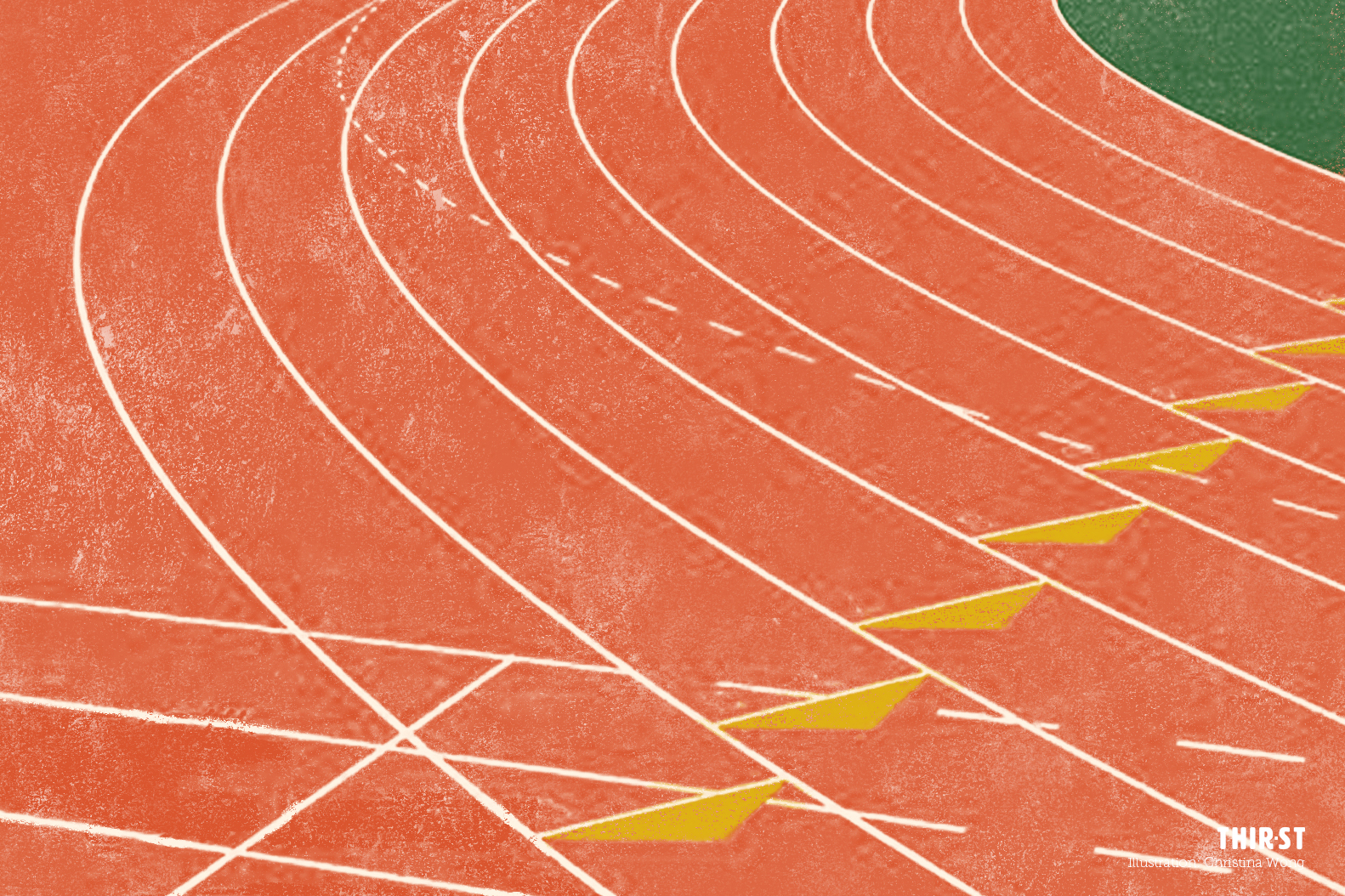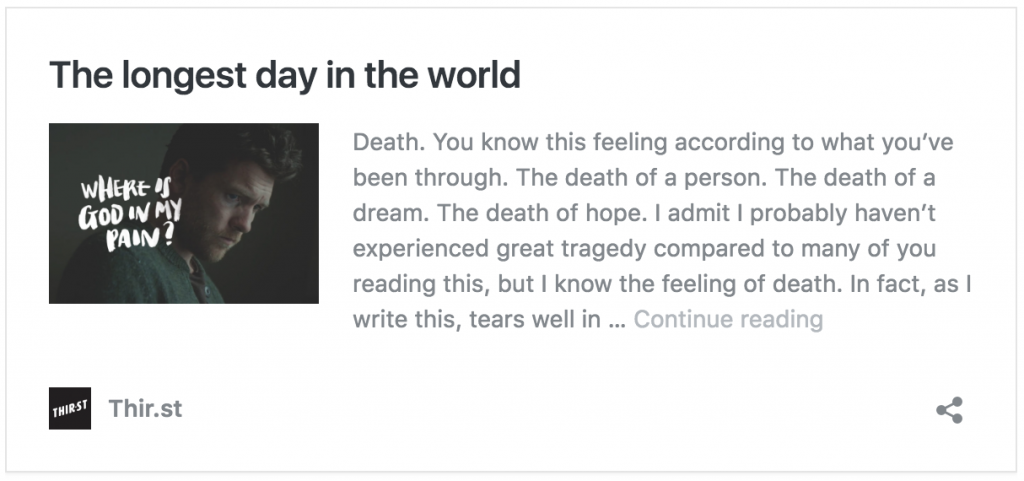“I was sexually abused when I was a child and that has really affected my perspective on relationships with the opposite gender.”
“I’ve been rejected my whole life – my mother had me out of wedlock and gave me up for adoption.”
As we each took turns to share why we were participating in this inner healing course, I was very appreciative of the vulnerability that was present in the circle of mostly middle-aged individuals.
Yet I didn’t expect my own experience of having grown up in a single-parent family to be disregarded by some simply because I was the youngest participant there. “It isn’t as bad lah,” I remember one participant remarking after I had finished sharing.
“You’re still too young to understand the hurt completely.”
I felt so slighted that I did not return for the following sessions. I was there because I wanted to recover from my pain, so why were they discounting it as being somewhat “inferior” to theirs?

It’s possible that our kiasu society, never willing to miss any opportunity to win and be ahead, has caused competitiveness to permeate every aspect of our culture and life. Can you imagine that even in our sufferings, we might be (un)consciously comparing with the person next to us?
I know it sounds extreme, yet, because of my fallen human nature, I know that there definitely have been times where I’ve unwittingly invalidated someone’s else pain to justify my own. It doesn’t even need to take place in a special church course, it can also take place in our everyday conversations.
“I’m so tired, I had to work OT for 3 hours yesterday!”
“Don’t complain! I’m even more exhausted, I only left the office at midnight!”
Does this then mean that the one who “only” worked an extra three hours suffered less than the one who left the office at midnight?
In a generation today that openly acknowledges and cradles its brokenness, we are determined, even fixated on wearing our hearts on our sleeves. This excerpt from a poem, “we are the broken generation“, sums up the laments of our generation nicely:
but in technology and the art of deceit
the craving to fit in has wiped out all hope of change
too little are brave enough to show their hand and admit that it’s all wrong
everything is wrong and they have all lost sight of what matters
Fortunately, or perhaps unfortunately, we have a variety of platforms to exhibit our brokenness on. These platforms allow for mediums of creative expression but yet our emotions get tangled all too easily in their inherently amoral structures.
A post meant to convey someone’s emotions can eventually be reduced to the amount of likes it gets on a social media platform. An article written by someone who is being candid about his struggles might be invalidated, like I was, by comments made by people who feel otherwise.

Yet just as what the poem says, perhaps we have lost sight of what really matters during suffering. Beyond the certainty that suffering of any kind will happen at some point in time, the other crucial point is that our perceptions of suffering are circumstantial and therefore, will always differ from each other.
A child’s concept of suffering is wholly based on a limited number of years lived and a specific set of circumstances experienced. Comparing it to a young adult’s or even an adult’s is clearly unfair. Comparing in itself, will always be unfair.
And since suffering is universal in sense, surely we can – we must – have a better response to another who is in need. You probably know how that person is feeling and what the person needs in that season, a sharing of wisdom and encouragement.
We must push each other to look towards what we can look forward to at the end of a season of suffering, and here’s 3 ways to do so:
1. Listen more than you speak
Take that time and effort to hear the person out and take time to understand. Ask open questions that helps you draw out the person’s context and emotional state instead of projecting your own beliefs and reactions onto their situations.
2. Respond without condemnation
Differentiate between a reaction and a response. Most of us don’t react with the intention to judge, but the instantaneous nature of a reaction reveals the prejudices of the unconscious mind. Responding involves reflection and that helps you balance your own opinion with someone else’s.
3. Keep each other accountable in prayer
Suffering takes place over a season, so remain with your friend and pour into him or her from the overflow of your daily walk. Pursue follow-up with him or her as well – you would want someone to do the same for you.
Suffering too, will pass. And in it’s wake, there will eventually be an uncovering of beauty in the brokenness, found in many different forms that include maturity, resilience and even thankfulness. Many of us have already been able to bear witness to that – and how we walk others through their suffering might be all it takes for them to find the hope of God as well.
To love another person is to see the face of God.
(Les Misérables)










